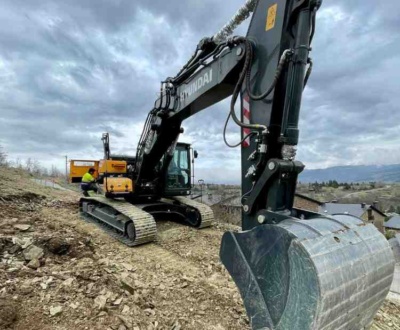Highways are a vital component of a nation’s transportation infrastructure, serving as the backbone for the movement of goods both domestically and internationally. These road networks connect production hubs to consumption points, making them indispensable for the smooth flow of freight. Highways ensure the efficient, cost-effective, and timely transportation of goods, which has a far-reaching impact on the economy. Below, we explore how highways contribute significantly to economic growth, enhancing various sectors and benefiting industries across the board.
Enhancing Freight Transport Efficiency
One of the primary economic benefits highways provide is the ability to streamline freight transport. Highways allow trucks to cover large distances quickly, often with fewer stops and delays than other forms of transportation, such as rail or air freight. This speed is crucial for industries that rely on timely deliveries, such as agriculture, where the freshness of perishable goods is of the utmost importance. The direct nature of highway routes also reduces the need for complex transfers or detours, allowing goods to be transported more efficiently.
Reducing Freight Transport Costs
Cost reduction is another key advantage that highways bring to freight transport. Compared to rail or air transport, freight by road tends to be more cost-effective, especially for short to medium distances. While rail systems require specific infrastructure like dedicated tracks, highways are more flexible and can be used by virtually any truck, making road transport more accessible. Additionally, highway transportation allows companies to take advantage of economies of scale by using larger trucks or higher payloads, which significantly reduces the cost per unit.
Lower transport costs translate directly into savings for businesses. This enables them to offer more competitive pricing on their products, contributing to a more vibrant and cost-effective market.
Promoting Trade and Expanding Markets
Highways play an instrumental role in supporting both international and domestic trade by connecting major industrial hubs, ports, and borders. A well-developed highway system enhances the movement of goods, fostering trade across regions. This is especially important in areas where rail infrastructure may be limited or underdeveloped, as highways provide the critical link between ports and inland cities.
Highway corridors that connect neighboring countries or regions facilitate the smooth flow of raw materials, finished products, and other goods. By enabling quicker and more efficient transport, highways help businesses expand their market reach both within the country and globally.
Stimulating Local Economies and Job Creation
The construction and ongoing maintenance of highways stimulate significant economic activity and job creation. Building and maintaining road infrastructure creates employment opportunities across various sectors, including construction, engineering, and logistics. Highways provide essential transportation solutions for businesses of all sizes, particularly in rural or remote areas where access may have previously been limited.
Enhancing Productivity and Reducing Inventory Costs
Efficient highway networks directly contribute to higher business productivity. With faster and more reliable transportation, goods can be moved quickly from suppliers to warehouses and then to consumers. This reduces the need for businesses to stockpile large quantities of inventory, which can be costly and inefficient. The ability to adopt just-in-time inventory practices—made possible by a dependable highway network—allows businesses to reduce storage costs and better manage their operations.
The reduction in delays allows businesses to plan and schedule their production cycles with greater accuracy. As a result, companies can increase output, reduce downtime, and improve overall productivity. With transportation becoming more reliable, businesses can achieve higher efficiency and reduce operational costs.
Encouraging Investment in Infrastructure and Economic Growth
Highways also drive investment in other areas of infrastructure and business development. A well-connected highway network makes regions more attractive for businesses to set up operations. Distribution centers, manufacturing plants, and warehouses are often built near major highway corridors, as they provide a cost-effective means for transporting goods and raw materials.
Additionally, highway expansion projects tend to improve road safety and reduce traffic congestion, which further enhances the efficiency of the transportation network. These improvements make regions more desirable for business investments, fostering long-term economic growth. The resulting benefits—improved road conditions, increased traffic flow, and heightened safety—attract further investment, stimulating economic activity and generating jobs.
At Baba Contractor and Engineer, we recognize the multitude of economic benefits that highways provide. From enhancing transport efficiency and reducing costs to promoting trade, creating jobs, and driving regional economic growth, highways are a cornerstone of economic development. As the demand for goods transportation continues to grow, the role of highways in fostering economic prosperity will only become more critical.








